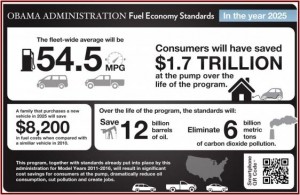
Regulators are counting on buyers shifting to smaller autos. Maybe they should explore counsumer sentiment in greater depth.
Rising fuel prices are having little effect on the type of vehicles U.S. buyers are considering. This latest research conundrum comes from consultancy AutoPacific, which claims that while drivers are complaining about fuel costs, the choice of a future vehicle appears decoupled from them.
The Fuel Price Impact Survey released today said that while drivers are paying $1 more per gallon than July of last year, about 25% of drivers surveyed still want an SUV or crossover for their next vehicle, and 14% want a pickup truck.
This is unchanged compared to drivers surveyed in July 2010 despite higher fuel costs. Small cars promise high fuel economy, but only 16% of respondents said they plan to purchase one for their next vehicle.
If true, this is big trouble for automakers and government regulators who are counting on a massive downsizing to realize huge increases in Corporate Average Fuel Economy (CAFE) that are now in place.
Instead of changing what they plan to purchase, drivers say they are altering their driving habits to deal with higher fuel prices–the highest percentage (41%) indicating that they combine driving trips.
Other survey conclusions:
$4/Gallon Gas Has Not Changed What Drivers Want Powering Their Vehicles. In July 2010, drivers surveyed were paying $2.77/gallon for gas but paid $3.70 in July 2011. Despite this spike, future-vehicle-powertrain intentions have remained virtually unchanged compared to last summer. About 23% of July 2011 respondents say they want a 4-cylinder engine in their next vehicle – identical to July 2010. Moreover, 15% still want a V8 engine, only a two-percentage point drop from July 2010.
Today Going Green May be in Vogue but Spending a lot of Green is Not. During the summer of 2008 fuel prices spiked to $4.11 per gallon nationally, and hybrid consideration peaked at 25%. Fuel prices have been hovering around $4/gallon this summer but hybrid consideration has remained at just 10%. Drivers today know that purchasing hybrids may be good for the environment but not necessarily good for their wallets. During these tough economic times drivers appear to be opting for what is best for their own economic well-being rather than paying more for green eco-friendliness, AutoPacific concludes.
Americans are Back to Dropping a Heavy Foot on the Accelerator Pedal. In July 2008 when fuel prices peaked, half (50%) of those surveyed said that they were driving slower than usual to compensate for the relatively high fuel prices. In July 2011 only 36% of those surveyed are slowing down. Higher fuel prices now generally force drivers to combine trips instead (51%) and just drive less (41%), while only 5% say they carpool more often–a sign that convenience may triumph over saving money.

